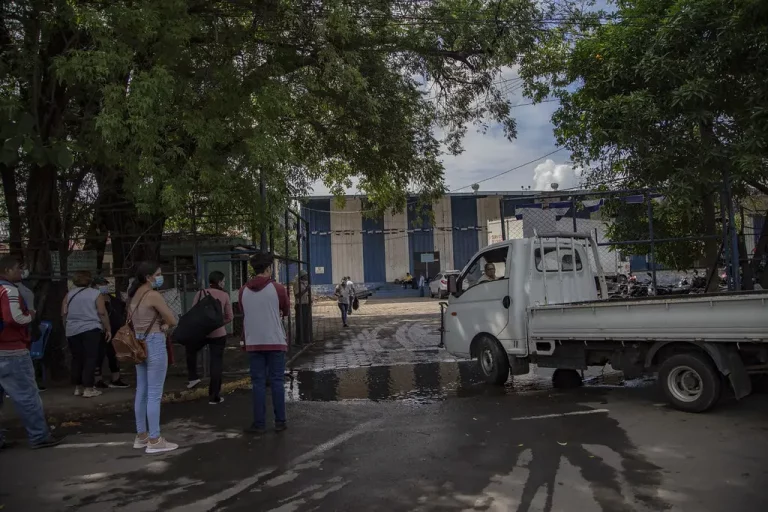22 de junio 2023

“NicaraguAmor” Cultural Caravan for Nicaraguans in the USA

PUBLICIDAD 1M
PUBLICIDAD 4D
PUBLICIDAD 5D
The card owners are "issued a citation" to appear at the Managua Airport and questioned about their income and the work they do in the US

The Customs Office at the Managua airport. Photo from Confidencial archives
The Nicaraguan Customs Authority (DGA) is maintaining absolute control over the debit cards US companies send to Nicaragua via payment platforms to finance the work of their employees in the country. Surveillance of these cards forms part of the political and financial surveillance operations implemented by the Ortega-Murillo dictatorship.
Confidencial spoke with three citizens that do online work for companies that offer services in the United States. Their testimonies regarding this Customs modus operandi that began at the end of 2022 are very similar.
The DGA intercepts the debit cards, preventing them from being delivered directly to their recipients who work for US companies. The State agency then notifies these people that their debit cards have arrived, and that they should present themselves in person at the Customs office to receive them.
“It’s not that they take it away from you. What they obligate you to do in order to have access to the card you were sent is to go personally to get it at the Customs office. However, when you arrive, they take down all the data from the card, and they begin to interrogate you,” stated one of those denouncing the new procedures. This person asked to remain anonymous to avoid reprisals from the regime.
“They ask you things like who you work for in the United States, what your work is, or what kind of work you do. After they see that what you do has nothing to do with anything political, they give you the card. But meanwhile they’ve taken down all the data from it and that’s really concerning, because they can do anything with that data,” stated another of the complainants, who also asked to omit their names.
All of those affected utilize the platform Payoneer in order to receive their pay from the US companies they work for. The platform allows its users to maintain a virtual bank account, or – if they prefer – a debit card can be sent them in Nicaragua.
Those denouncing the Customs interrogations explained that sending the debit cards is a measure adopted by the US companies, since they can’t make direct deposits into Nicaraguan bank accounts due to restrictions imposed by the country’s National Finance System.
The companies send the debit cards to Nicaragua via DHL, which is the agency that has informed the card owners how to proceed in the face of this new Customs policy. The card owners must first appear personally at the DHL fiscal warehouse to pick up the documentation that Customs requires, plus register themselves at the DHL facility. With these documents in hand, they then go in person to the main Customs office, located at the Managua International Airport, to pick up the card.
Another of those affected stated that he knows a lot of people in Customs through his work. An employee of this agency explained to him the apparent motives of these policies: “It’s to control every person who receives money from the United States; so they don’t get into politics or go around badmouthing the Government. He told me that it’s a joint operation between Customs and the [Financial Analysis Unit].”
The Financial Analysis Unit is an entity controlled by the Nicaraguan Army and National Police. It maintains a constant monitoring of the money coming into the country from outside, with the objective of blocking any kind of financing to the opposition organizations, or to organizations of civil society.
The Financial Analysis Units also have a mandate to monitor family remittances of 500 dollars or more. Experts consider that many of the surveillance faculties of these Units violate the right to account holders’ banking privacy.
This article was originally published in Spanish in Confidencial and translated by Havana Times.
PUBLICIDAD 3M
Confidencial es un diario digital nicaragüense, de formato multimedia, fundado por Carlos F. Chamorro en junio de 1996. Inició como un semanario impreso y hoy es un medio de referencia regional con información, análisis, entrevistas, perfiles, reportajes e investigaciones sobre Nicaragua, informando desde el exilio por la persecución política de la dictadura de Daniel Ortega y Rosario Murillo.
PUBLICIDAD 3D